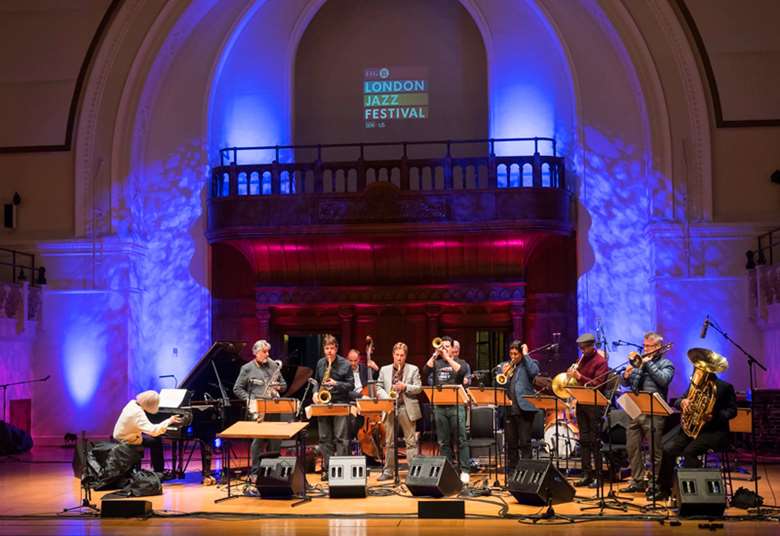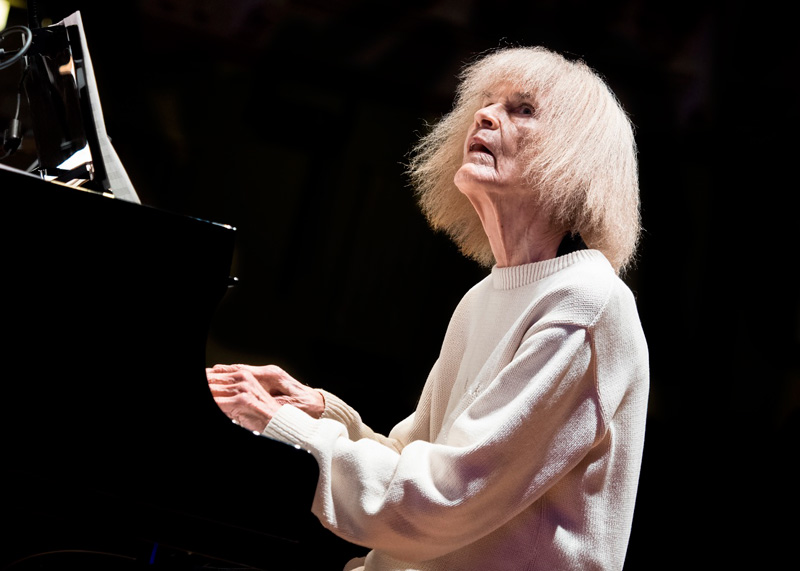Freedom Suite: Carla Bley conducts Charlie Haden's Liberation Music Orchestra at Cadogan Hall
Tuesday, November 22, 2016
Charlie Haden's LMO legacy lives on in the hands of his regular collaborator Carla Bley and with the active support of Ruth Cameron, his widow.

It was Cameron who spoke from the stage before this performance at Cadogan Hall, reminding the audience of Haden's original intentions for his orchestra and identifying the pieces that were to be played. She then name-checked the musicians one by one, with the frail-seeming Bley silent, conducting and playing her occasional piano interludes.
The first piece was a sumptuous reworking of 'Blue and Green' with Bley's soft, elegiac harmonies, Darek Oles' bass solo momentarily recalling Haden's unique qualities, trumpeter Michael Rodriguez's solo highlighted, this just the first of his many superb interjections. 'Not In My Name' gave Loren Stillman's Desmond-like alto due prominence, projected over waves of sound, the atmosphere quite solemn. 'Time Life' from the band's new album, brought the tenor of Tony Malaby to the fore, his solo languorous at first, the emotion quite palpable, with drummer Matt Wilson heard at length.

It was the special combination of 'America The Beautiful' with Ornette Coleman's 'Skies of America' that moved us most, the ensemble playing poised and careful, reverential in tone, rising into turbulence before gradually moving into free-form, and then subsiding, Seneca Black's trumpet quite direct. Then followed Bley's rather wonderful version of 'Amazing Grace' featuring trombonist Marshall Gilke's single, resolute blast and more of Malaby's sanctified tenor plus soulful guitar from the very impressive Steve Gardenas. Haden's 'Song for the Whales' opened with bowed bass noises and cymbal scrapes, Malaby and Black combining quite beautifully as Wilson brought the piece to an end with more whale-like sounds.
Bill Frisell's 'Throughout' was the encore, marked by Bley's mesmeric piano figures and the soft sounds of the tenor duo, Malaby and Chris Cheek, the writing like a chorale, the final chords as lovely as anything heard that night, underpinned by Vincent Chancey's French horn and the bubbling beauty of Earl McIntyre's tuba.
– Peter Vacher
– Photo by Tim Dickeson